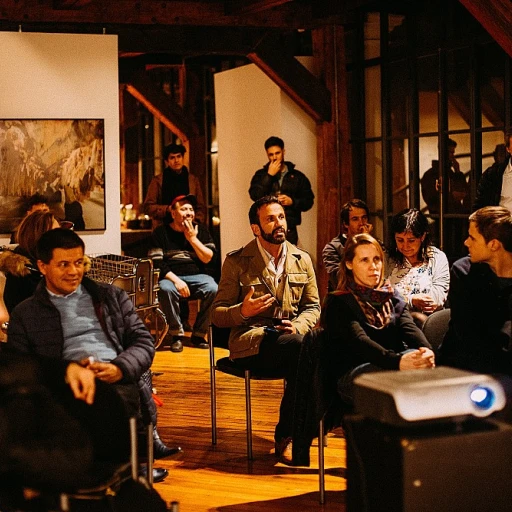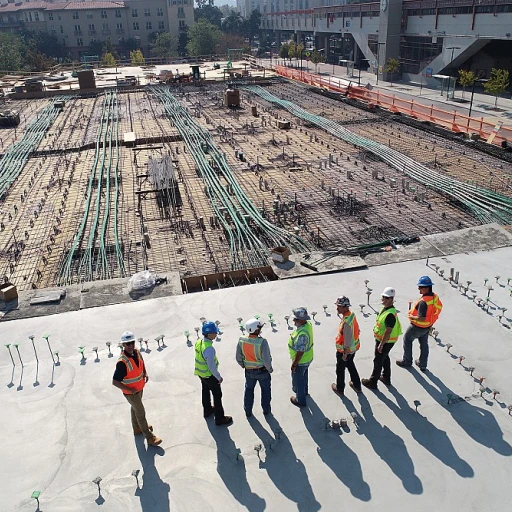
Decoding 'We'll Be in Touch'
Understanding the Subtext
In the vast landscape of job interviews, the phrase "we'll be in touch" often emerges as a double-edged sword. While straightforward, its implications can be diverse. For job seekers, understanding this phrase can sometimes be the key to deciphering the interview outcome. Typically, when an interviewer states "we'll be in touch," it might seem like an open-ended promise. However, it often indicates a standard procedure within the company’s hiring process. It’s important to recognize that this statement might not always guarantee immediate feedback or swift decisions. In many cases, hiring managers may use this phrase as a courteous way to bring the interview to a conclusion, especially when interviewing multiple candidates for the position. It's essential to consider the context and the specifics communicated during the job interview to better interpret this statement. Throughout the interview process, the hiring team collects detailed feedback that helps assess if you are a good cultural fit for the company. Receiving a "we'll be in touch" could also indicate the need for further deliberation on their part. As a candidate, patience is crucial, keeping in mind that all interviews, whether initial consultations or final interviews, are part of this comprehensive evaluation. Additionally, the diversity of interview formats and interviewer preferences means that not all responses will be immediate. Some companies may take time to re-evaluate interview questions and assess the feedback from previous rounds. To better manage expectations, consider effective ways to provide interview feedback as part of understanding how hiring managers operate.Common Reasons for Delayed Responses
Factors That May Extend Response Times
When you're eagerly waiting for feedback from an HR interview, understanding the reasons behind delayed responses can be insightful. Various elements can impact how quickly the hiring manager and team communicate their decisions to candidates.
- High Volume of Applicants: In competitive job markets, companies may receive numerous applications for a single position. Assessing hundreds of resumes, cover letters, and conducting multiple rounds of interviews could extend the time it takes for a company to get back to you.
- Internal Processes and Approvals: Many organizations have detailed internal processes and approval steps that require careful consideration of hiring budgets, role requirements, and team structures. Consulting with different departments might be needed to finalize the candidate selection.
- Scheduling Conflicts: Coordinating the availability of various stakeholders involved in the interview process, especially for final rounds, can result in unexpected delays.
- Re-Evaluation of Candidates: It’s common for interviewers to revisit interview notes and candidate assessments to ensure a good cultural fit and the right skills for the position.
- Unforeseen Circumstances: Sometimes, delays are simply due to holidays, staff absences, or urgent company matters that take precedence over the hiring process.
Understanding these factors can help job seekers manage expectations and stress during their job search. If you find yourself in a prolonged waiting period, consider implementing effective ways to request feedback after a job rejection for further clarity. Keeping these potential delays in mind will serve as a reminder that the waiting period is often not a reflection of your performance or potential as a candidate.
How to Interpret HR Feedback
Interpreting Feedback from HR
After a job interview, understanding the feedback from the hiring manager or HR can greatly influence your next steps in the job search process. Typically, feedback is valuable as it allows candidates to gauge their interview performance and understand how well they align with the company's expectations and cultural fit.
While feedback may not always be detailed, when Hr or interviewers provide any comments, it's crucial to interpret them correctly:
- Positive Feedback: If the HR department provides feedback that highlights your strengths, it’s an encouraging sign. It means you are a strong contender for the position and have aligned well with what the company is looking for. Continue to keep up the strong image and stay prepared for further discussions.
- Constructive Criticism: Occasionally, HR may offer areas for improvement. This isn't necessarily a negative response. Instead, consider it an opportunity to further refine your skills and approach. Assess the suggestions offered, and if invited for another round of interviews, employ these insights to enhance your performance.
- No Feedback: In some instances, you might not receive any feedback immediately following the interview. While this might be frustrating, remembering that the interview process can be lengthy can note it. Patience combined with a timely follow-up can often yield results.
Be proactive in deciphering the potential implications of HR feedback for your job interview. Keep your responses, whether verbal or written, professional and focus on continuously learning and improving. If you're curious about the nuances involved in feedback interpretation, this detailed analysis might provide further insights.
Effective Follow-Up Strategies
Maximizing Your Post-Interview Opportunities
Navigating the post-interview phase effectively can make a significant difference in your job search journey. The hiring manager has a lot on their plate, and your initiative in reaching out can help keep you at the forefront of their mind. Here are some strategies to follow up constructively:- Email Follow-Up: Within 24 to 48 hours post-interview, draft a thoughtful email to the interviewer or hiring manager. Thank them for the opportunity, express your continued interest in the position, and subtly highlight a point discussed during the interview that excited you about the role. This reinforces your enthusiasm and helps you stand out among other candidates.
- Phone Check-In: If you haven’t heard back in the timeframe indicated during your interview, consider a polite phone check-in. Frame your call politely—something like “I hope you're doing well. I'm eager to know the next steps in the interview process and to learn about any further information you might need from me.”
- LinkedIn Connection: If you haven’t done so already, connect on LinkedIn. This not only keeps you visible but adds a layer of professionalism to your candidacy. Send a personalized message with your request, not forgetting to reiterate your enthusiasm for possibly joining their team.
- Timing is Key: You don’t want to come across as pushy, but you also don’t want to let too much time pass. If they said "We'll be in touch," giving them about a week to respond is a good guideline unless otherwise instructed.
Managing Expectations and Emotions
Balancing Patience with Proactivity
Navigating the world of HR interview processes can often feel like walking on a tightrope, suspended between hope and uncertainty. After hearing the oft-repeated phrase "We’ll be in touch," what follows is a mix of anticipation and anxiety. Here’s how to stay composed and manage your emotions while maintaining a sense of control. One fundamental aspect of managing expectations is understanding that hiring managers are juggling various tasks beyond just filling the position. The delay in response could result from the coordination of multiple final round interviews, deliberations over cultural fit, or simply their own workload. It's essential to recognize these factors are often not in the candidate's control, and this realization can help mitigate undue stress. Emotional resilience in this period is key. Acknowledge the effort you have put into the job interview process, from crafting your cover letter to successfully reaching the final interview. Use common interview questions as an opportunity to reflect on your performance and identify areas for improvement. Keeping busy during your job search can also alleviate stress. Continue applying to other companies, preparing diligently for upcoming interviews, or even seeking consulting opportunities that could enhance your skills. Remember, the definition of success lies not solely in getting an offer but also in growing and learning from each experience. Engaging proactively is another effective tactic. While giving space to the hiring manager, set a reasonable timeline for your follow-up. A good rule of thumb is to wait about one week after not hearing back to send a polite and professional email interview follow-up, expressing your continued interest and asking if there are any updates. Moreover, sharing your questions with fellow job seekers or career writers can provide a fresh perspective and reinforce your self-assurance. Don’t hesitate to touch base with your network for additional insights and support. Ultimately, the interview process is just one part of your career journey. Celebrate the positives in each interaction, and keep in mind: final outcomes aren't the only measure of a candidate's worth. Good luck!Next Steps if You Don't Hear Back
Exploring Your Options When Communication Stalls
After a job interview, the anticipation of hearing back can be nerve-wracking. If you find yourself in a situation where the hiring manager or interviewer has not reached out, it's essential to consider your next steps carefully. Here are some strategies to help you navigate this phase of your job search:
- Reflect on the Interview: Take some time to review the interview process. Consider the questions asked, your answers, and any feedback you received. This reflection can provide insights into your performance and help you prepare for future interviews.
- Reach Out Again: If a reasonable amount of time has passed since your last communication, consider sending a polite follow-up email. Reiterate your interest in the position and inquire about any updates regarding the hiring process. Remember to keep your tone professional and concise.
- Continue Your Job Search: While waiting for a response, continue applying for other positions. This approach not only keeps your options open but also helps manage the emotional impact of waiting. Remember, the job market is competitive, and staying proactive is crucial.
- Evaluate the Company Culture: If communication has stalled, it might be worth considering if this reflects the company's communication style or culture. A lack of timely feedback could be indicative of broader organizational issues.
- Seek Feedback: If you eventually receive a rejection or no response at all, consider reaching out to the hiring manager or HR department to request feedback. Understanding their perspective can be invaluable for your future interviews.
In the end, managing your expectations and emotions is key. The job search process can be unpredictable, and maintaining a balanced perspective will serve you well. Good luck with your ongoing job search!













